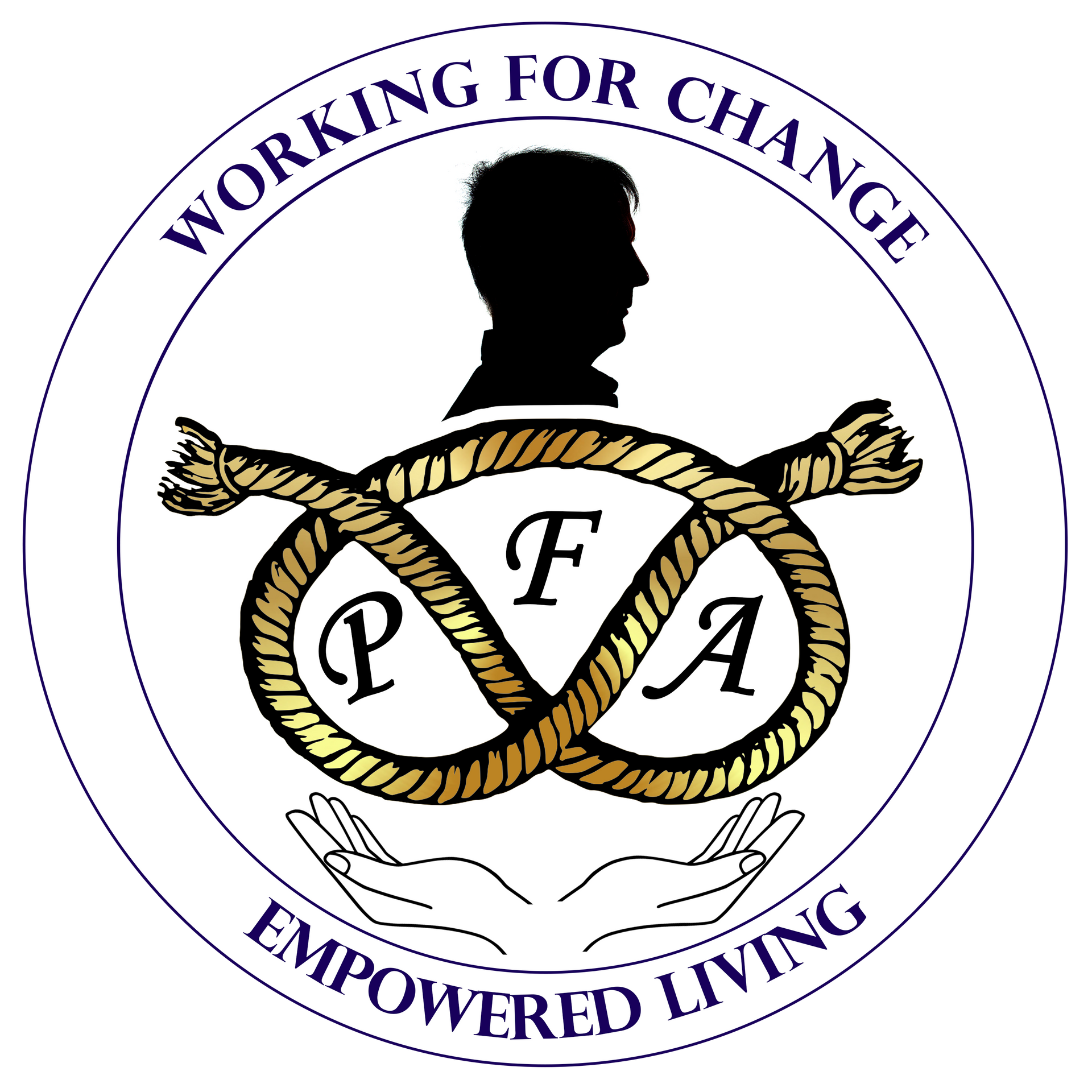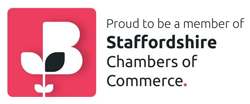A Lifetime of Sight Loss: Dispelling Misconceptions and Embracing Understanding
By Philip Francis Anderson, Activist and Podcast Host, Campaigning for Change.
Beyond the Blindfold: Tackling Misconceptions About Sight Loss with Real-Life Insights and Long-Term Solutions
Introduction
Closing your eyes for a moment or spending a day in a blindfold does not make you an expert on sight loss, just as sitting in a wheelchair briefly does not make you a specialist in mobility. As someone who has lived with total sight loss throughout my lifetime, I have often encountered individuals who claim to understand the challenges of living with distinct levels of vision based on short-lived experiences. In this article, I aim to shed light on the misconceptions surrounding sight loss by drawing upon my personal journey and the realities faced by individuals who navigate the world with diverse experiences of vision, while providing a few more long-term solutions to acquiring insight.
The initial reaction when donning a blindfold is often one of fear and helplessness. The familiar sense of control vanishes, which in turn leaves individuals disoriented and assuming that this is what it must be like to live with vision loss. However, it is crucial to recognise that unless there is immediate danger, most individuals with total sight loss do not live in constant fear. As someone who has experienced sight loss from birth, I have learned to adapt and navigate the world by relying on my other senses such as hearing, touch, and smell.
Misconceptions about sight loss often stem from these fleeting experiences of disorientation. While it might be challenging at first to navigate your way through a room in a blindfold, the experience does not accurately capture the intricate ways in which individuals with sight loss develop spatial awareness. Over time, through a combination of auditory cues, echoes, and tactile feedback, such individuals construct a mental map of their surroundings. This enhanced spatial perception allows them to move with confidence and independence.
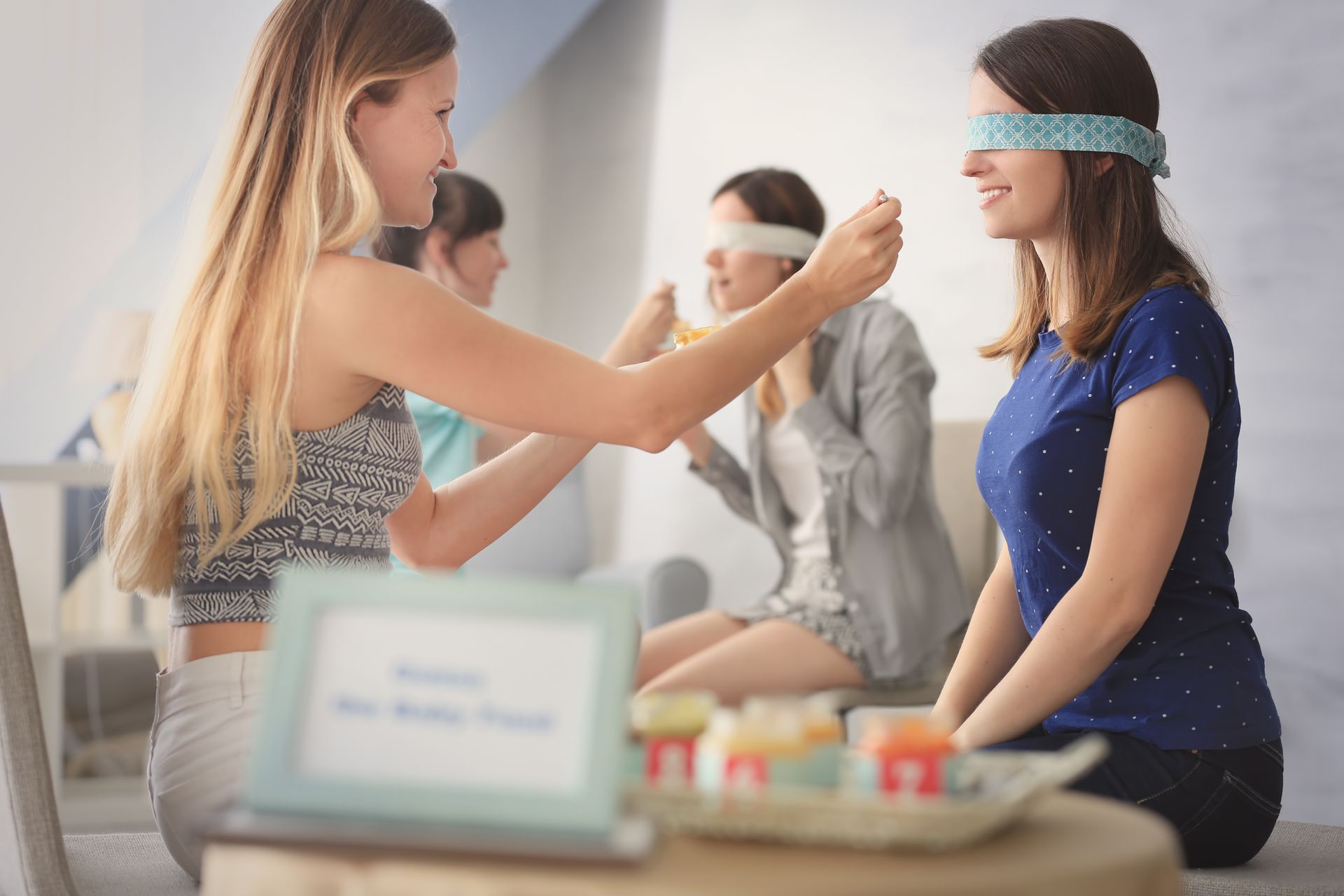
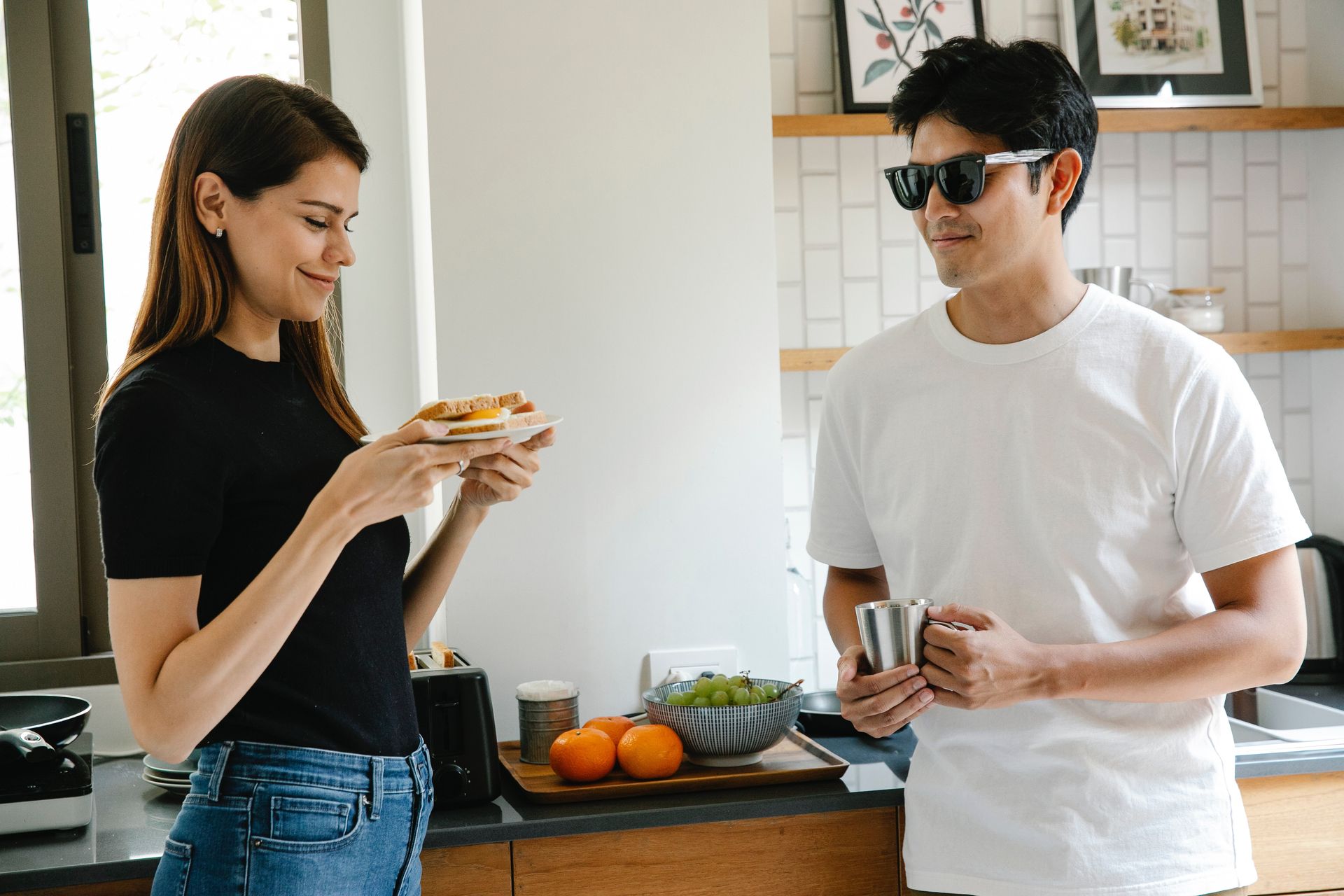
Another misconception is the assumption that individuals with sight loss rely on others for daily activities. That all depends on personal circumstance. There are those who, through no fault of their own, may require extra support while they learn the art of independence. Whereas others may find they can manage on their own without any assistance. Irrespective, it is important to acknowledge the vast capabilities of individuals with a visual impairment such as a chef. It is interesting to observe them as they skilfully navigate the kitchen, who relies on precise measurements, texture, and taste to create culinary masterpieces. Their expertise and confidence debunk the notion that sight is a prerequisite for cooking. It is through adaptation, practice, and honing of other senses that they excel in their chosen field.
Furthermore, adapting to sight loss is a gradual process that extends far beyond the absence of visual stimuli. It involves developing innovative strategies to perform daily tasks. For instance, consider a computer programmer with sight loss who uses screen-reading software and keyboard shortcuts to write complex lines of code. Their ability to excel in a highly visual and technical field demonstrates the power of determination, creativity, and the utilisation of alternative tools to overcome challenges.
It is also essential to recognise the diversity within the community of individuals with sight loss. Each person's experience is unique, influenced by factors such as the degree of vision loss, the age at which it occurred, and individual circumstances. For instance, there are those who may have acquired sight loss later in life due to conditions like macular degeneration, while others may have been born with varying levels of vision. Their experiences, coping mechanisms, and needs can vary significantly. By acknowledging and appreciating this diversity, we can avoid generalisations and treat everyone’s journey with the respect it deserves.

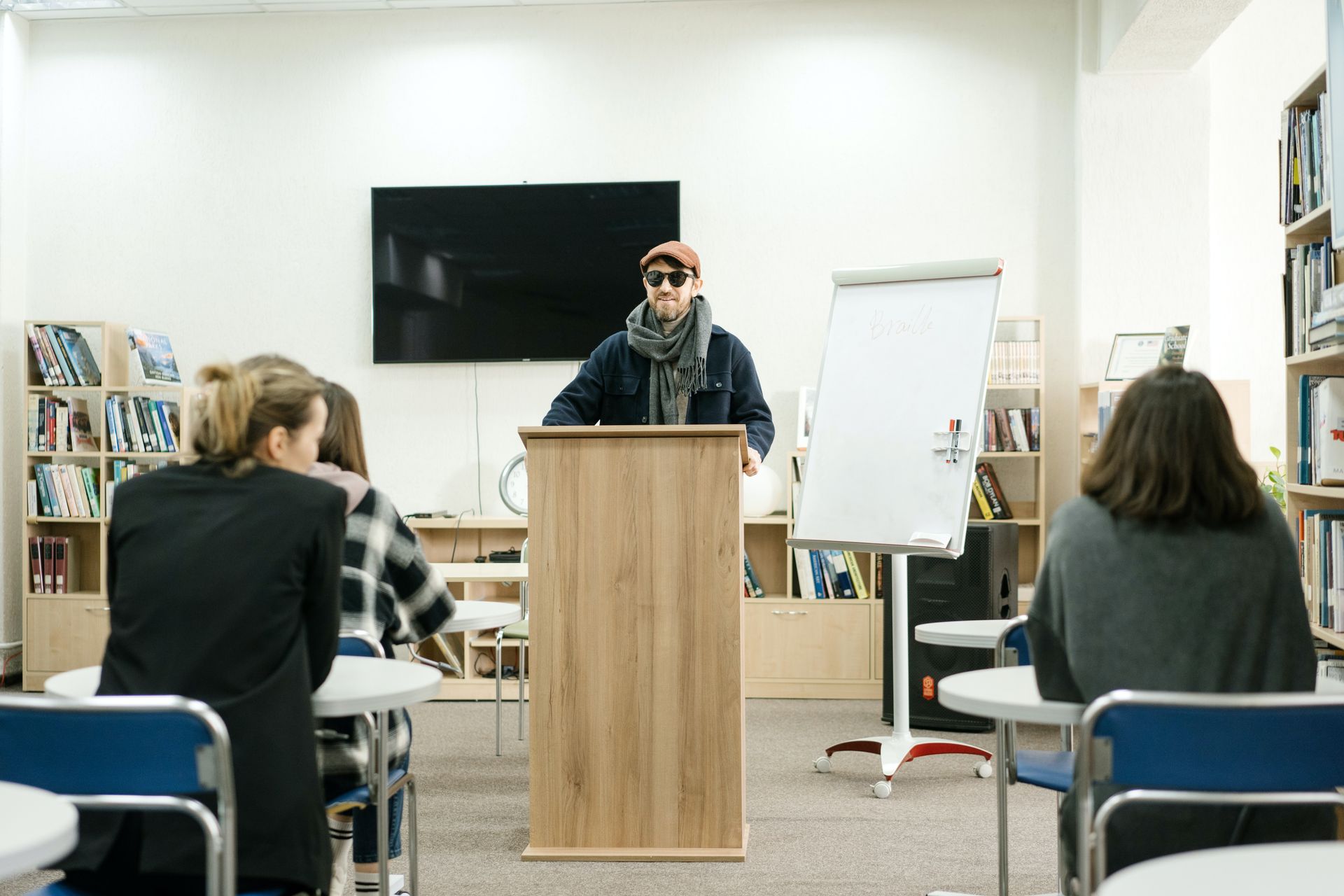
Promoting Understanding and Empathy:
Enhancing Awareness of Sight Loss
To foster a deeper understanding of the challenges and experiences faced by individuals with sight loss, it's important to go beyond short-lived simulations or temporary adaptations. Instead, we can engage in a range of activities and educational initiatives that promote lasting comprehension and connection.
One powerful approach is education through storytelling and personal narratives. By listening to first-hand accounts from individuals living with sight loss, we gain insight into their daily lives, emotional journeys, and the specific obstacles they face. These stories provide a profound understanding of the resilience, adaptability, and unique perspectives of those with visual impairments.
Furthermore, open dialogue and conversations play a vital role. Actively seeking opportunities to listen and learn from individuals with sight loss creates spaces for meaningful exchanges and the sharing of experiences. This allows us to ask questions, challenge assumptions, and develop a deeper appreciation for the diverse realities within the visually impaired community.
In addition, immersing ourselves in sensory experiences can enhance understanding. Participating in guided activities that focus on sound, touch, and spatial awareness can simulate aspects of living with sight loss. By temporarily relying on these senses, we begin to grasp the different ways individuals with visual impairments navigate the world and gain a better understanding of the unique strengths they develop.
Moreover, fostering inclusive environments is crucial. By creating spaces that consider the needs of individuals with sight loss, such as implementing accessible technologies, providing clear and tactile signage, and ensuring appropriate lighting, we promote inclusivity and remove barriers that hinder full participation.
Of course, for anyone to achieve a genuine realisation and understanding of individuals with sight loss, requires long-term commitment, active listening, education, and the fostering of inclusive environments. By embracing these practices, we can bridge the understanding gap, promote empathy, and work towards a more inclusive and compassionate society for all.
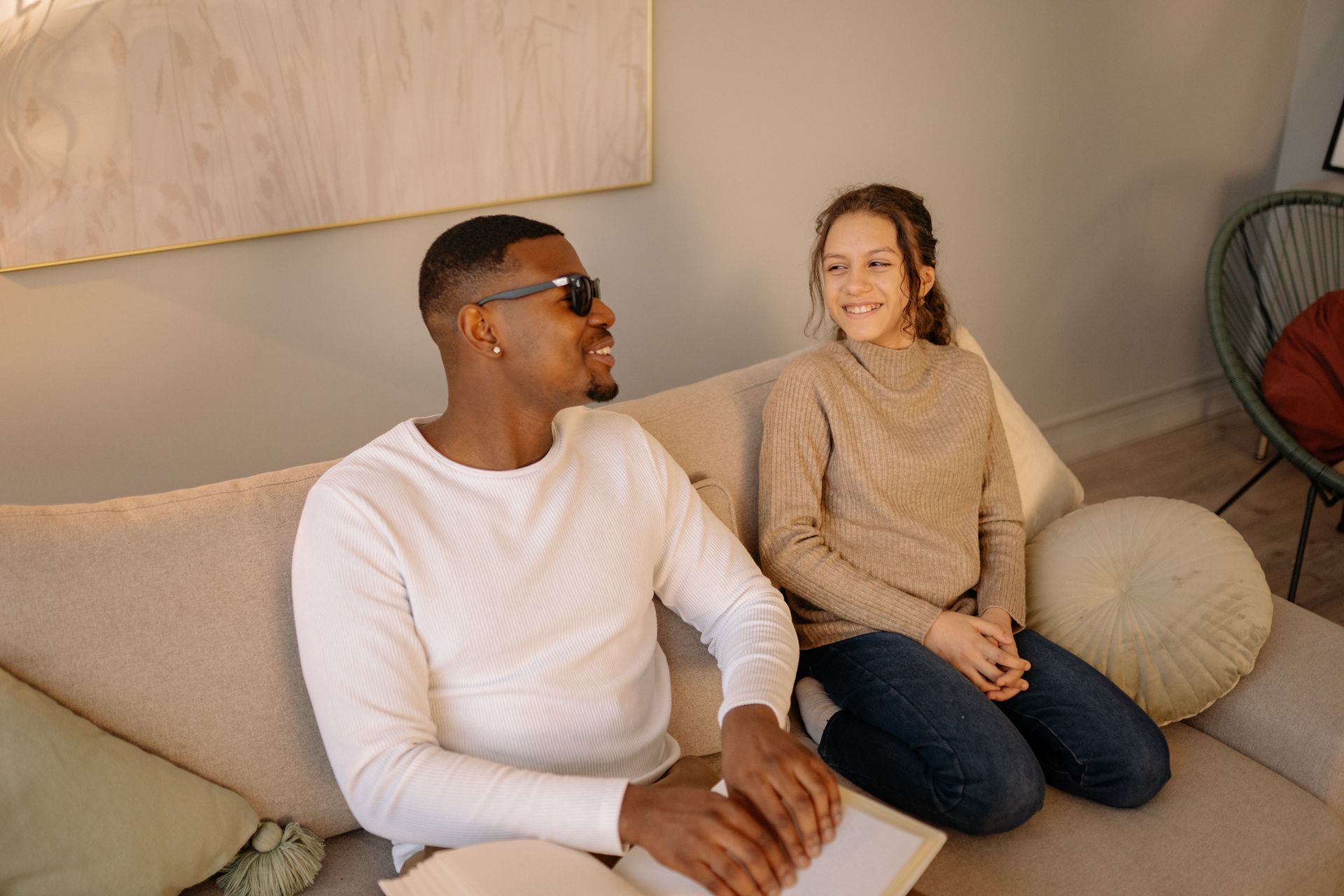
Conclusion
It is essential to dispel the misconception that brief encounters with sight loss, such as donning a blindfold or engaging in role-playing exercises, can provide a comprehensive understanding of the experience. Such experiences may offer a glimpse into the initial challenges, but they fail to capture the full extent of the adaptability, resilience, and unique perspectives that emerge from a lifetime of living with sight loss.
True understanding and empathy in the realm of sight loss require a commitment to ongoing learning and actively engaging with individuals who have lived experiences. By addressing common misconceptions, celebrating the capabilities of individuals with sight loss, and acknowledging the diversity within the community, we can foster a more informed and inclusive society. Only when we replace assumptions and stereotypes with genuine curiosity and desire to understand, will we build a world where the perspectives and needs of anyone with sight loss is fully recognised and embraced.
Comments Welcome!
To leave a general comment, feedback about a post, or even recommendations for a topic to cover, please just fill out this form. For those who would prefer to send their comment in using audio, there is the additional option to upload an audio file.
Contact Us
In line with GDPR, only complete this form if you are happy for me to use your answers for the purposes of processing of your request and in all
corresponding communications thereafter. Read my Privacy Policy for more information on how I manage your personal data. This contact form is also protected by reCAPTCHA, a Google system. Google's Privacy Policy and Terms of Service apply and are available to read when using the reCAPTCHA tool.
